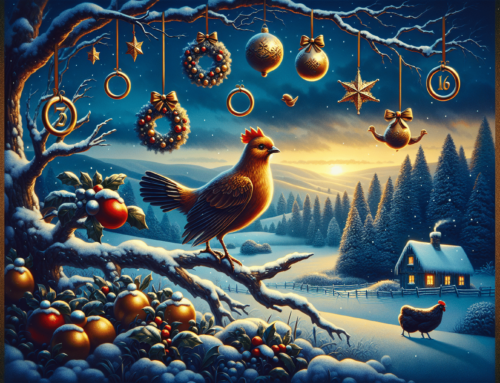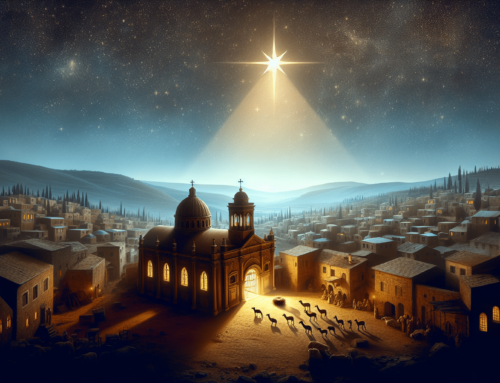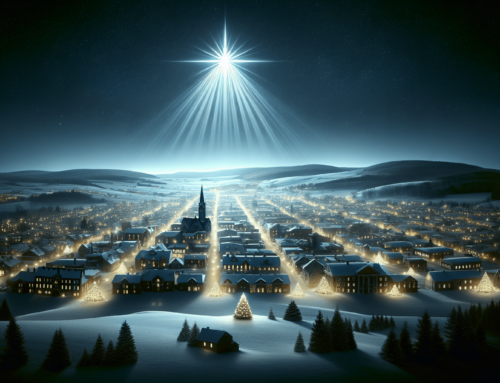Which Countries Celebrate Christmas On 24th?

As you find yourself wrapped in the festive warmth of the holiday season, you might be curious about the global tapestry of Christmas celebrations. While you’re hanging stockings by the chimney with care in anticipation for December 25th, numerous cultures across the world are already reveling in Christmas cheer on December 24th. From European nations embracing the coziness of Christmas Eve to South American festivities that light up the night, your curiosity is about to be rewarded with a delightful journey into the traditions of countries that mark the yuletide with early celebrations.
The Historical Origins of Christmas Eve Celebrations
The traditions that riddle your Christmas Eve have deep historical roots that are as fascinating as the festivities themselves. Let’s delve into the tapestry of customs that constitute your holiday cheer, tracing back their colorful fibers to the very beginnings.
Pagan traditions and the winter solstice
Originally, your Christmas Eve celebrations weren’t Christmas at all. They were part of pagan traditions linked to the winter solstice. Ancient peoples, your ancestors, held festivals to honor Saturn, the Roman god of agriculture, and celebrated Yule in Norse tradition. During this time, as the darkest day passed, they reveled in the promise of returning light – a fitting metaphor for hope and rebirth that you continue to embrace in your festive season.
The adoption by Christianity of the 24th
As Christianity spread, your forefathers in faith sought to incorporate and replace the pagan festivals with Christian meaning. The 24th of December was adopted as the night before Jesus Christ’s birth, a strategic overlap with existing celebrations to ensure a smoother transition from pagan to Christian observances. Thus, Christmas Eve began to take shape in the tapestry of your celebration history.
Regional variations in Christmas celebrations
Your Christmas Eve is as diverse as the world around you. Different regions have embraced the day with a wide array of customs, shaped over centuries by culture, religion, and local traditions. From lighting candles to feasting, each element of your celebration is a thread that connects you to the past and to the communities worldwide.
European Countries Celebrating on the 24th
Europe, a vibrant quilt of cultures, holds a dear place in the Christmas Eve narrative. Many of your European cousins celebrate on the 24th, each with unique practices that are deeply meaningful and steeped in the history of their land.
Scandinavia: A tradition of ‘Julaften’
In the snowy realms of Scandinavia, ‘Julaften’ – or Christmas Eve – is the main event. Your Nordic friends gather on the 24th to exchange gifts and share a meal, often featuring a Julbord, a buffet that is a nod to their Viking past. It’s a night of warmth and light in the depth of winter, cherished by families and marked by hearty feasting.
Germany: ‘Heiligabend’ customs
You might find yourself in Germany swept up in ‘Heiligabend’, the holy evening. Festivities begin with trimming the Christmas tree, followed by the ringing of a bell which signals the start of the gift exchange – a moment eagerly awaited by children and adults alike. The night culminates in a reflective church visit, grounding the festivities in religious observation.
Poland: ‘Wigilia’, the Christmas Eve feast
In Poland, ‘Wigilia’, the Christmas Eve feast, is a sacred gathering. You would traditionally share an opulent meal only after the first star has been sighted in the evening sky, symbolizing the Star of Bethlehem. The setting of an extra place at the table for an unexpected guest is a poignant reminder of the hospitality integral to the holiday spirit.
Slovakia and the Czech Republic: Traditional practices
Your Slavic cousins in Slovakia and the Czech Republic hold Christmas Eve in high regard. Their traditional practices include a day of fasting, followed by a feast that serves as a testament to their culinary heritage. Carp is the centerpiece at the table, often accompanied by hand-made wafers symbolizing communal unity.
Hungary: ‘Szenteste’, a time for family
In Hungary, ‘Szenteste’ or Holy Evening is synonymous with family. Beyond the sumptuous spread that characterizes the evening, it’s a time to come together and reaffirm familial bonds. Stories are shared, folk songs sung, and the importance of kinship is woven into every aspect of the celebration.
Latin American Countries with Christmas Eve Traditions
As you cross the ocean, you’ll discover that Christmas Eve kindles a festive flame in the hearts of many Latin American nations. The blend of indigenous, African, and European influences has engraved unique traditions in the fabric of their holiday season.
Mexico: ‘Nochebuena’ and midnight Mass
In Mexico, ‘Nochebuena’, the good night, is a rich tapestry of customs culminating in the midnight Mass or ‘Misa de Gallo’. Families first enjoy a sumptuous dinner together, then head to church, their hearts full of joy and gratitude. Fireworks light up the night sky, mirroring the sparkling of revelers’ eyes.
Brazil: ‘Véspera de Natal’ festivities
For your Brazilian friends, ‘Véspera de Natal’ is a time of exuberance and merry-making. Houses are festooned with colorful decorations, and the air resonates with music and laughter. Gift-giving on Christmas Eve is a gesture that weaves the individual into the social fabric of giving and receiving.
Argentina: Celebrations leading to the ‘Misa del Gallo’
In Argentina, the rhythm of Christmas Eve builds up to the ‘Misa del Gallo’. The evening is festive, filled with music, dance, and a late-night feast. As the clock strikes twelve, families and friends stream into churches to attend the rooster’s mass, a tradition that heralds the birth of Christ.
African Nations and Christmas on the 24th
Traversing to the African continent reveals a variety of traditions that mark Christmas Eve. The diversity of cultural expressions provides a mosaic of celebration practices.
Ethiopia: ‘Ganna’ and the Julian calendar
In Ethiopia, Christmas, or ‘Ganna’, falls on the 7th of January due to the Julian calendar. Nonetheless, the 24th of December is observed by fasting and anticipation. The distinction in dates highlights the rich tapestry of calendars and cultural practices that you find across the globe.
Egypt: Coptic Christmas on the 24th of December
Your Coptic kin in Egypt celebrate Christmas Eve on the 24th of December, culminating in a late-night Mass. This religious observance is reflective of deep-rooted traditions that have persevered and adapted over centuries, showcasing the endurance and evolution of your shared practices.
Distinct 24th December Customs in Various Countries
Every corner of the world adds its own flavor to the Christmas Eve celebrations. Some of these customs have become so ingrained they are now emblematic of the nation’s cultural identity.
Denmark: ‘Juleaften’ and the Christmas plate
Your Danish friends celebrate ‘Juleaften’ on the 24th with a unique tradition of the Christmas plate. Dating back to the 19th century, these collectible plates are a beloved part of the holiday decor, representing familial heritage and the artistry of the season.
Italy: ‘Vigilia di Natale’ and the Feast of the Seven Fishes
On the Mediterranean shores of Italy, ‘Vigilia di Natale’, or Christmas Eve, is heralded by the Feast of the Seven Fishes. This sumptuous meal, replete with a variety of seafood, is a nod to both the country’s cuisine and the Roman Catholic tradition of abstaining from meat on the eve of a feast day.
Portugal: ‘Consoada’ traditions
In Portugal, ‘Consoada’ is a time for family and reflection. The evening meal might be more modest than other European counterparts but is rich in symbolism. The practice of setting extra places at the table for ‘alminhas a penar’ (the souls of the dead) reflects a deep-rooted spiritual connection to the ancestors.
Sweden: ‘Julafton’ and the ‘Julbord’ buffet
Swedes celebrate ‘Julafton’ with a grand ‘Julbord’, a buffet that is a winter smörgåsbord. It is a lavish spread with an array of traditional fare. The lighting of candles and the singing of Christmas carols infuse the air with festivity and unity, highlighting Sweden’s communal culture.
Christmas Eve Religious Services
Regardless of the latitude or longitude, religious services remain a cornerstone of Christmas Eve in many countries, embodying the spiritual essence of the holiday.
Midnight Mass: A universal practice
You might find yourself at midnight Mass, a universal practice among those who celebrate Christmas. This service is the spiritual high point of the evening, reenacting the reverent anticipation of the birth of Christ. It is a moment of communal prayer and reflection that unites participants across the world.
Regional religious rites on the 24th
Each region adds its own distinctive rites to the religious observance. Whether it’s the distinct carols sung in a remote village or a special liturgy practiced only in a specific locale, these regional rites are precious gems in the crown of Christmas Eve traditions.
The impact of the 24th on local church traditions
The involvement of the church in Christmas Eve celebrations has been deeply impactful on local church traditions. Varied practices such as the blessing of the home with holy water, processions, and dramatizations of the Nativity scene have evolved through ecclesiastical influence, enriching the cultural and spiritual life of communities.
Public and National Celebrations
Christmas Eve isn’t confined to the warmth of your living room; it spills out into the streets with public and national celebrations that bring together communities and ignite the festive spirit.
Christmas markets on the 24th
Strolling through Christmas markets on the eve of the 25th is a cherished activity in many parts of the world. These markets, aglow with festive lights and brimming with holiday treats, crafts, and gifts, are a feast for the senses. They embody the communal aspect of the holiday, bringing people together in the spirit of warmth and joviality.
National holiday status in certain countries
In some nations, Christmas Eve has been conferred national holiday status, an acknowledgment of its cultural significance and the need for time to come together and observe the occasion. This designation reinforces your ties to tradition and the importance of the non-commercial aspects of the holiday.
Public lighting and decoration customs
Your shared public spaces come alive with lighting and decoration customs that elevate the ambiance. Whether it’s the grandeur of a city’s central Christmas tree or the simplicity of star lanterns adorning a rural streetscape, these customs are visual markers of the season of giving and joy.
The Exchange of Gifts
Gift-giving is a cornerstone of Christmas Eve, a practice laden with historical and cultural significance.
The tradition of giving presents on the 24th
The tradition of giving presents on Christmas Eve predates the commercialism that marks the season today. Initially, these gifts were simple, often homemade, and full of personal meaning. They were tokens of love and appreciation, reinforcing social bonds and communal ties.
Cultural significance of Christmas Eve gifting
The cultural significance of gifting on this night often transcends the material value of the presents. It’s a symbolic exchange that celebrates your interconnectedness and empathy. Whether it’s a small token or an extravagant gift, the act of giving is a bridge between hearts and a shared human experience.
Differing Santa Claus traditions by country
Your vision of Santa Claus, the iconic bearer of gifts, varies from country to country. While some wait for Father Christmas to fill their stockings, others look forward to St. Nicholas or La Befana. These differing traditions reflect the rich spectrum of folklore and cultural storytelling that enrich your celebrations.
Family Gatherings and Meals
The centerpiece of Christmas Eve is often the family meal, a symbol of togetherness and shared heritage.
The importance of the family dinner on the 24th
This gathering is a time-honored ritual, a moment to pause from the hum of daily life and simply be with loved ones. It carries the weight of tradition, carrying forward the flavors and conversations of generations.
Typical dishes served on Christmas Eve
Your Christmas Eve table might be graced with dishes ranging from roasted meats to seafood delicacies, each dish telling a story of regional preferences and historical influences. From Polish pierogi to Italian panettone, these foods are as integral to your observance as the candles or carols.
Variations in family traditions across countries
Variations abound in your family traditions, from the timing of the meal to the type of food served. Some families honor the past by preparing recipes handed down over generations, while others incorporate contemporary flavors, showing that traditions are living, breathing aspects of your heritage.
Do Any Countries Outside of Europe Celebrate Christmas on the 24th?
Yes, there are countries outside of Europe that celebrate Christmas on the 24th. These countries include South American countries like Brazil and Bolivia. In many Latin American countries, the Christmas celebration date is on the 24th rather than the 25th, as is the tradition in Europe.
The Influence of Immigration and Globalization
In an ever more connected world, immigration and globalization have had a pronounced impact on Christmas Eve traditions.
Adaptation of Christmas Eve traditions
As communities migrate, they adapt their customs to new environments, creating hybrids that are a testament to human creativity and adaptability. These new traditions can enrich the cultural tapestry of their adopted countries, bringing diversity and fresh perspectives.
The spread of December 24th celebrations to non-traditional countries
As your world grows smaller through globalization, the celebration of Christmas Eve spreads even to countries where it previously held no significance. This spread is a reflection of the universal human desire for festivity, community, and the marking of time with special observances.
Foreign influences impacting local Christmas customs
The flow of cultures across borders brings with it new influences that impact local Christmas customs. From the food on your table to the music that fills your streets, these foreign imports intermingle with established traditions to create a new, enriched version of Christmas Eve that reflects the dynamic nature of your global society.
As you reflect on the rich history and varied customs of Christmas Eve around the globe, you realize how these traditions are threads in a larger human tapestry. Each practice, from the flickering of candles to the gathering of families, reveals your shared desire for connection, reflection, and celebration. And so, on the night of the 24th, as you partake in your own traditions, take a moment to acknowledge the global family that rejoices with you, each in their unique and wondrous way.



